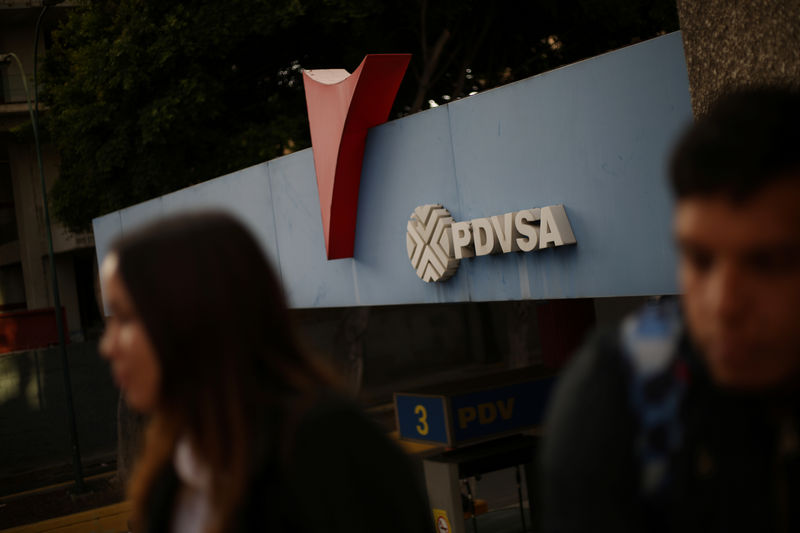By Marianna Parraga
(Reuters) - Venezuela's state-run company oil company, PDVSA, hit by U.S. sanctions on Monday, ordered customers with tankers waiting to load Venezuelan crude bound for the United States to pay for the cargoes before they depart, three sources with knowledge of the decision told Reuters.
U.S. President Donald Trump's administration, in a move aimed at limiting embattled President Nicolas Maduro's access to oil revenues, stopped PDVSA from collecting the proceeds of oil exported to U.S. customers, while freezing assets of PDVSA's units, including U.S. refining arm Citgo Petroleum Corp.
Maduro, whose authority is being challenged by the self-proclaimed president and head of the congress, Juan Guaido, said earlier his government would start legal action to protect Citgo. He did not mention if PDVSA planned changes to its exports.
"They are not allowing tankers bound for Valero, Citgo and Chevron to leave Venezuelan ports if not prepaid," a PDVSA source said, referring to a decision by the company's trade and supply division.
Venezuela exports about 500,000 barrels per day (bpd) of crude to the United States. Citgo, Valero Energy Corp (NYSE:VLO) and Chevron Corp (NYSE:CVX) are the three largest buyers of Venezuelan crude in the United States.
Valero said it planned to "comply with the sanctions" and diversify oil purchases to reduce the impact on its business.
"Valero will continue to support the Administration and will provide officials with relevant information that will help the U.S. refining system to function efficiently," it said in a statement.
Refining firm Phillips 66 (NYSE:PSX), another buyer of Venezuelan oil until last year, said it expected to be able to obtain alternative crude grades and "mitigate any disruption in crude supply for our operations."
Traders and shippers with tankers anchored around Venezuelan ports said they saw no clear way for U.S. customers to pay for Venezuelan crude after sanctions, even if payments are intended to be made before loading.
According to the new sanctions, any proceeds from Venezuelan crude exported to U.S. companies will stay in special bank accounts in the United States.
The trading sources said they feared the European Union may follow with similar measures freezing PDVSA's accounts in Europe.

Several years ago, PDVSA moved its bank accounts that receive money from oil exports mainly to China. It also has accounts in Europe. But U.S. firms willing to transfer money to those foreign accounts still need to find correspondent banks in the United States willing to authorize the transactions, which is difficult because of sanctions.